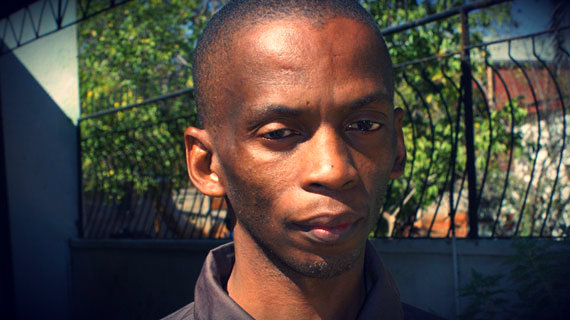
LAST week I quoted from the prophet Ezekiel in the Bible who was asked whether dry human bones in a certain valley could live.
I used this to allude to the Zimbabwean political landscape where opposition political parties appear to be literally in the intensive care unit and Zanu PF has already failed in the first year of retaining power to deal with the economic problems bedevilling the country.
The state of the opposition as I stated last week is worrying and points to a Zanu PF victory in 2018, possibly without rigging this time.
There is no doubt that the opposition is weaker than ever before due to splits and factionalism within them. This is likely to worsen in the MDC-T as the party heads for an elective congress. We must not forget that one of the major protagonists for leadership renewal in the MDC-T was none other than former Harare mayor Elias Mudzuri who wrote a scathing article which was published in the private media.
It is, therefore, quite possible that if Mudzuri is obliterated in the elective congress together with those on his side of the fence there will be more fragmentation. Although MDC-T leader Morgan Tsvangirai has lacked political acumen to outfox President Robert Mugabe, he may easily outwit internal opponents striking a deal to accommodate Mudzuri somehow and managing his (Mudzuri’s) political ambitions.
This would be a rare stroke of political genius on Tsvangirai’s part if he were able to manage his internal adversaries by offering them key posts in the party. While this is undesirable, it is usually a useful political tool to manage intricate political power dynamics within political institutions and structures.
As the cliché goes in politics, “at times it is wise to keep your friends close and your enemies even closer”.
A casual analysis of Tsvangirai’s political behaviour, however, suggests that he has historically dealt very poorly with internal opposition and has thus presided over two splits in his party. Empirical evidence and patterns of political behaviour indicate that he may struggle to manage internal conflict come congress time.
- Chamisa under fire over US$120K donation
- Mavhunga puts DeMbare into Chibuku quarterfinals
- Pension funds bet on Cabora Bassa oilfields
- Councils defy govt fire tender directive
Keep Reading
If this happens, it may result in another split with those not satisfied with the congress outcome, leaving the party to join either the renewal team or to form their own party which would be quite ill advised .
One advantage that Tsvangirai seems to have is that in spite of his continual blundering and propensity for fatal political mistakes, he still has a unique place within the grassroots. Tragically, there are many who still think that “he is sinned against more than he sins” and is a victim of Zanu PF shenanigans.
He is likely to win his party’s congress, but cannot win a national election anymore outside of a united front.
The renewal team headed by Tendai Biti seems to have a lot of intellectual and political arsenal, but is clearly struggling on strategy, especially ways and means of mobilising the support of the grassroots. Incredibly, the renewal team appears to mobilise from the top instead of building a large social base.
They have claimed that they are engaging civil society and other political parties, but a lot of us in civil society have never seen any of them anywhere unless they are engaging civil society which is already appended to political parties and, in particular, their formation.
Their biggest mistake is positioning themselves as an opposition to an opposition by focusing on Tsvangirai and his well documented blunders. That sort of politics won’t sell anymore given the general depression and apathy to politics. The renewal team needs to rid itself of elitist tendencies which may make it irrelevant and ineffective .
A new leadership needs to emerge from the usual suspects who have been part of opposition politics for the past 14 years, but have been changing factions and parties without delivering change.
Zanu PF has only managed to survive factionalism because of the militarisation of the party, the influence of the party president who is a source of derision for the opposition and a source of unity for his party and the fact that political parties with a liberation struggle background rarely have significant splits. This is the case whether in South Africa, Angola and Mozambique.
Splits that have happened have not resulted in the formation of political parties capable of defeating incumbent parties as seen by COPE and EFF in South Africa. While this is not desirable, it is the reality on the ground.
The inevitable departure of the current Zanu PF president due to natural and biological attrition will eventually weaken the party and for the first time disintegration may become a reality.
What complicates the Zanu PF situation is the entry of First Lady Grace Mugabe in the fray. Though her nomination to head the women’s league may be a master stroke by one faction or the other, the fact that a third power portal has been created is a reality and the First Lady is likely to increase in influence resulting in more internal discontent .
The economy or the continued economic meltdown will give a fresh lease of life to the opposition though. As it appears, Zanu PF is clueless about how to solve the country’s economic problems in spite of posturing about ZimAsset which has been used to claim success for anything and everything.
Mayibuye! WhatsApp number 0779 617 926 for feedback Dumisani Nkomo is an activist, social entrepreneur and chief executive officer of Habakkuk Trust. He writes here in his personal capacity.










